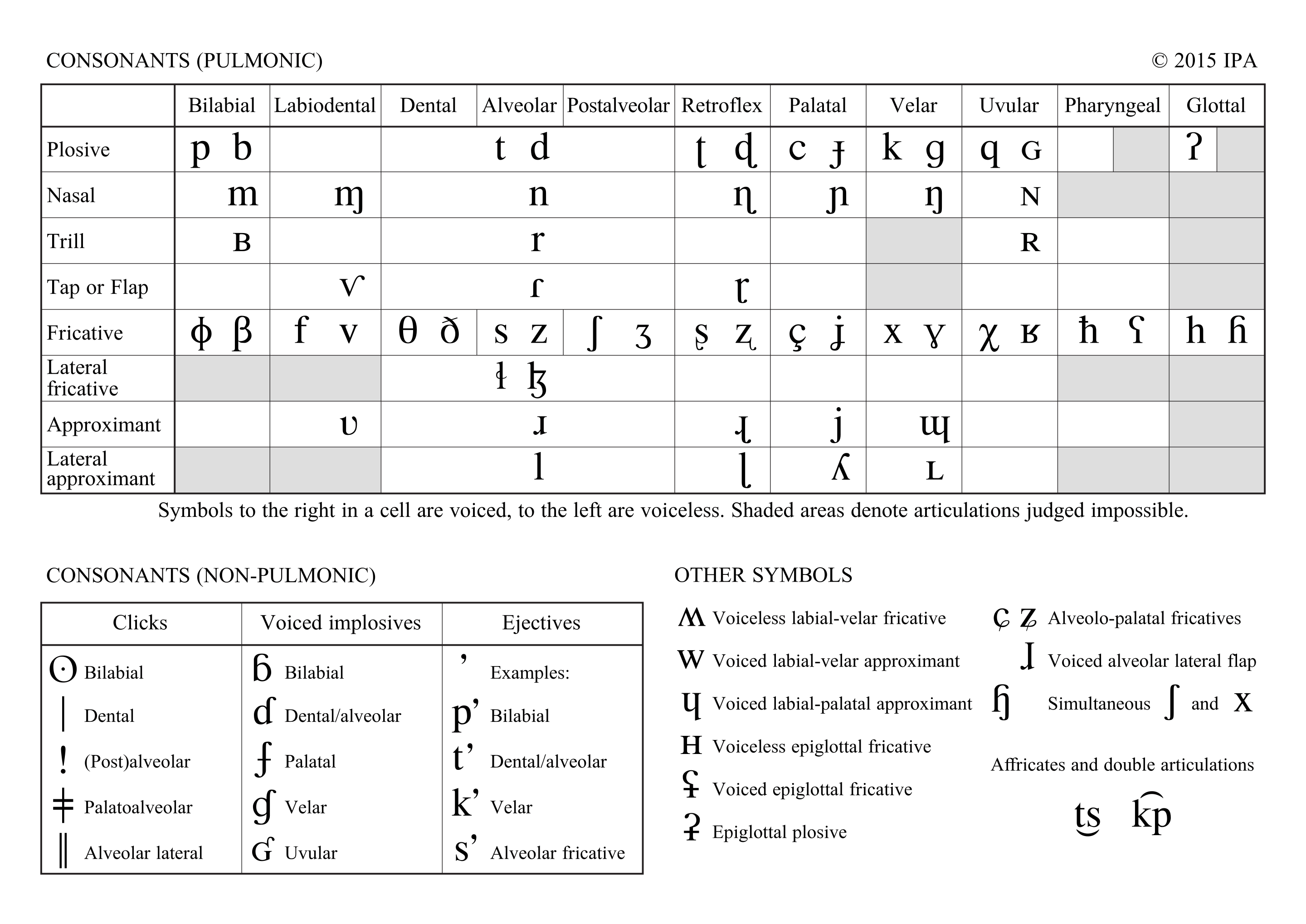Most Common Pronunciation Errors for Russian Speakers Learning English
When learning a new language, it’s common to use the pronunciation and articulation patterns from your native language when pronouncing words in the new language. Mastering typical pronunciation is a process, and it’s not always an easy task! This post will explain some common pronunciation errors for native Russian speakers learning English.
Consonant Mix-ups
Many Russian-native English learners mispronounce consonants or replace consonants with sounds that are more common in their native tongue. Some of the common mix-ups are:
[v] – [w]: It is common to say “ vot” instead of “what”, “wodka” instead of “vodka”, or “ven” instead of “when”. This is because Russian does not have a clear distinction between the /w/ and /v/ sounds.
Additionally, there are no dental fricatives (/θ/ and /ð/) in Russian. Following are consonants that are often substituted for dental fricatives:
Some speakers might say
[s] – [θ]- “sink” instead of “think”
[f] – [θ]- “free” instead of “three”
[z] – [ð]- “zer” instead of “there”
[t] – [θ]- “tank you” instead of “thank you”
[w] – [ð]- “bruh-wer” instead of “brother”
[d] – [ð] “dat” instead of “that”
Mispronouncing Vowel Sounds
In the Russian language, there are only five or six vowel sounds. In English, there are arguably 14 or more vowel sounds. For this reason, Russian speakers may replace multiple English vowel sounds with one Russian vowel. Here are some examples:
cut/ cart ≠ Russian /a/
Russian speakers may replace English /ʌ/ and /a/ sounds with the Russian /a/: sound, which is often drawn out for longer.
meet/ mit ≠ Russian /i/
Russian speakers tend to use the Russian /i/ for both /ɪ/ and /i/ in English.
mat/ met ≠ Russian /ɛ/
In English, the vowel in words such as “mat” (/æ/) is more open than the vowel in words such as “met” (/ɛ/). Russian speakers tend to use the Russian /ɛ/: sound for both of these sounds.
look/loop ≠ Russian /u/
In Russian, the sound /ʊ/ is lower and more forward than the English /u/. It is common for Russian speakers to use this Russian /ʊ/ sound when pronouncing words.
Muting Voiced Consonants at Word Ending
When speaking in Russian, consonants at the end of words are typically voiceless and non-sonorous. In English, however, consonants at the end of words are voiced. This small difference can completely change the meaning of a word. For example, “bad” (adjective) can become “bat” (noun), “cab” can become “cap”, “dog” can become “dock”, and so forth. Muting voiced consonants does not change the meaning of the word in all cases, however, it is most often important to be aware of these nuances.
Altering Phonemes
Due to the differences between the English and Russian alphabet, it is also common to slightly mispronounce a few specific phonemes (sounds) in speech:
- In Russian, the /ŋ/ phoneme (or the -ing sound) is not used. Some Russian-native English learners tend to substitute this sound with the /n/ sound, for example by saying “brin” instead of “bring”.
- In English /d/, /s/, /t/, and /n/ are all alveolar sounds, meaning the tongue tip contacts the alveolar ridge when pronounced. Some native Russian speakers might dentalize these sounds. In other words, they touch their tongue to their teeth when pronouncing them.
- The phoneme /r/ may be trilled, whereas in English the tongue tip does not touch the roof of the mouth when pronounced.
- Phonemes /r/ and /l/ may be velarized, meaning these sounds are pronounced farther back in the mouth than how native English speakers pronounce them.
- The phoneme /h/ may become a velar fricative, meaning it is pronounced farther forward in the vocal tract.
- Many words in English (often depending on the region) contain the schwa sound /ə/, which can be spelled with any of the vowels /a, e, i, o, u/. It is common for Russian speakers to pronounce these syllables as written rather than using schwa. For example, the word “sentence” is pronounced [sɛntəns], and a Russian speaker may pronounce this word as [sɛntɛns].
Main Areas of Challenge with Language
We’ve discussed common pronunciation errors, and the next step to improving fluency is honing in on language skills. Listed are three areas of language that can present challenges to learners of English:
- Articles: One of the most common errors made by individuals learning English is omitting articles. In the Russian language, definite and indefinite articles such as “a”, “an”, and “the” do not exist. So, for example, someone might say “I am student” instead of correctly saying “I am a student” or “I ate sandwich” instead of “I ate the sandwich”.
- Prepositions: Using the correct preposition or omitting prepositions is another commonly made mistake. For example, someone might say “I called to my friend” instead of “I called my friend” or “I arrived from Portland” instead of “I arrived in Portland”.
- Verb tenses: Verb tenses can be difficult to decipher in any language. In English, it is common for non-native speakers to use the infinitive of the verb rather than the correct form. For example, someone might say “I throw a ball for the dog” rather than “I threw a ball for the dog”. Some students also use the past simple instead of using the perfect tense.
Differences in Intonation
In comparison to English, the Russian language can be relatively flat in tone with sudden inflections in pitch. Learning typical intonation can take time and exposure to the spoken language. A component of this is learning stress; the primary stress on the dominant syllable of a word is louder and longer in pronunciation. It can be easy for speakers to misplace the primary stress in words on the wrong syllable. This can make spoken language harder to understand.
Remember: This is an Educational Process
Learning a new language takes time, and mistakes are all a part of the educational process as well as important tools for improving proficiency! Studies have shown that when learning a new skill, most people learn more effectively when they are aware of weak areas in need of focus. Being conscious of these common mistakes will not only help you hone your expertise but will also make you a more efficient learner and speaker. To further your knowledge and learn more about the Russian language, check out this page.
References
Crosby, C.F. (2013). L1 Influence on L2 Intonation in Russian Speakers of English. Unpublished MA Thesis. Portland State University, United States.
L., M. (2019, February 14). The most common problems students in Russia face when learning english. Retrieved from https://www.teflcourse.net
Wright, K. (2005). Typical Phonological Development in English: Effects of a Bilingual Russian-English Language Environment. Master’s Thesis, Portland State University.
Questions or Comments? Contact us here.
For help with your communication and pronunciation skills, check out Packard Communications’ services page for an initial assessment, small classes, individual training, or online training!
Accent Modification Accent Reduction Speaking English Speech Skills Learning American English Speech Pronunciation Intonation Vowels Consonants Talking Communication Spelling Presentation Skills Interviewing Conversation Speech-Language Pathologist Online Training Coaching Private Classes Seminars SLP Speech Therapist
Portland Oregon Hillsboro Beaverton Bethany Cedar Mill Cedar Hills Oak Hills Lake Oswego West Linn West Slope Camas Happy Valley Rock Creek Sherwood Raleigh Hills Tigard Tualatin Gresham Wilsonville Aloha Salem Eugene Springfield Corvallis Oregon City Woodburn Forest Grove Newberg Milwaukee Sherwood Canby Troutdale Cornelius
American Accent Chinese Accent Mandarin Accent Spanish Accent British Accent Indian Accent Hindi Accent Arabic Accent Portuguese Accent Bengali Accent Russian Accent Japanese Accent German Accent Korean Accent Arabic Accent French Accent Vietnamese Accent Telugu Accent Marathi Accent Turkish Accent Tamil Accent Urdu Accent








